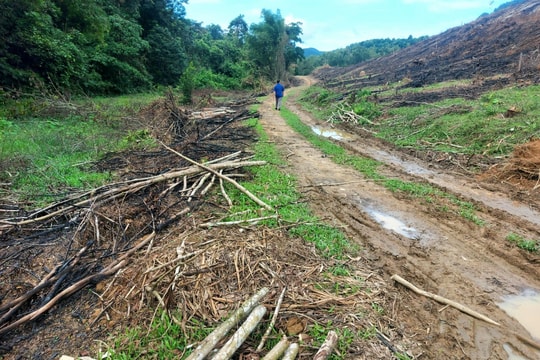Request to reclaim forestry land and hand it over to people for production
(Baonghean.vn) - Continuing to reclaim land from Co Ba Forestry Farm and hand it over to people for production is the recommendation of the representative of the Village Management Board of Chau Binh Commune (Quy Chau) to the Supervisory Delegation of the National Assembly's Ethnic Council.
On the morning of September 6, 2017, the National Assembly Ethnic Council performed the task of supervising the situation and results of the implementation of policies and laws on land and forest allocation to communities and households in ethnic minority and mountainous areas in the period of 2006 - 2016 in Chau Binh commune, Quy Chau district. On the side of the monitoring delegation, there was Ms. Cao Thi Xuan - Vice President of the National Assembly Ethnic Council as Head of the delegation and members of the National Assembly Ethnic Council, experts of the Ethnic Department (National Assembly Office), representatives of the Central Highlands Steering Committee, Ministry of Agriculture and Rural Development. On the side of Nghe An province, there were representatives of the Standing Committee of the Provincial People's Council; the Provincial National Assembly Delegation; leaders of the departments and branches: Agriculture and Rural Development; Natural Resources and Environment; Provincial Ethnic Minorities Committee; Forestry Sub-Department; leaders of Quy Chau district and Chau Binh commune. |
According to the report of Chau Binh Commune People's Committee, the implementation of documents guiding the implementation of land and forest allocation by the Government and central ministries and branches is carried out regularly, creating conditions for people to have timely access. Before 2005, the commune organized land allocation according to Decree 163/1999/ND-CP for 8 local communities with a total area of 270.91 hectares.
In 2013, after receiving the land recovered by the Provincial People's Committee from Co Ba Forestry Farm, the commune continued to assign 128.96 hectares of forest land to a village community (Ke Can village) for protection. Currently, this forest area is well managed and protected by the community.
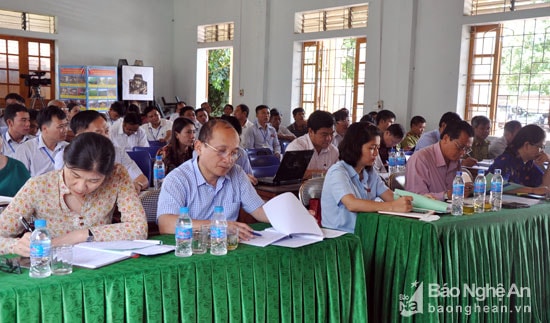 |
| Scene of the working session at the People's Committee of Chau Binh commune (Quy Chau). Photo: Cong Kien |
The work of allocating land and forests to households, individuals, and ethnic minority households is mainly being carried out in accordance with Decree 163/1999/ND-CP. From 2003 to 2012, the commune established records of forestry land allocation for 861 households with 2,889.0 hectares. From 2013 to 2016, the commune continued to establish records and allocate land to 763 households with 1,135.48 hectares. Ethnic minority households allocated land are 726/1,252 households (accounting for 58% of the total number of ethnic minority households in the commune).
On that basis, the management and production organization of the community and households are carried out in accordance with regulations, the forest is well managed and protected, and an annual plan for exploitation and use is developed. The forest planting plan is guaranteed, aiming at the goal of sustainable and effective use and exploitation. The rights of the community and households are guaranteed.
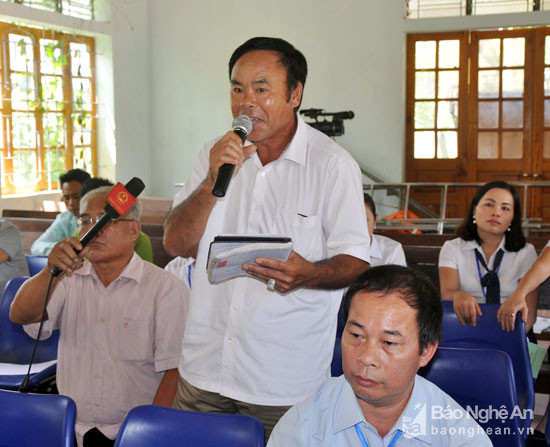 |
| Mr. Nguyen Van Thien - Head of village 3/2, Chau Binh commune (Quy Chau) reflects the situation of people lacking land for production. Photo: Cong Kien |
However, at present, Chau Binh commune still has over 930 households, of which 526 are ethnic minority households lacking land for production. This is due to the steep terrain, partly flooded due to the construction of Mong village reservoir, high population growth rate, arbitrary transfer of land use rights...
The policy of land and forest allocation has met the practical needs of ethnic and mountainous communities and households, creating more jobs, increasing income, exploiting advantages and raising awareness of forest management and protection. The main limitation is that the remaining local land fund is very small, and there are still disputes and lawsuits causing insecurity and disorder.
Based on the local situation, Chau Binh commune recommends continuing to implement the policy of allocating land and forests to the community and ethnic minorities. Support the regime of forest planting, care and protection according to the proposed policy. Consider adjusting the land fund of Co Ba Forestry Farm to the locality soon to grant to the people for production to eliminate hunger, reduce poverty and improve living standards.
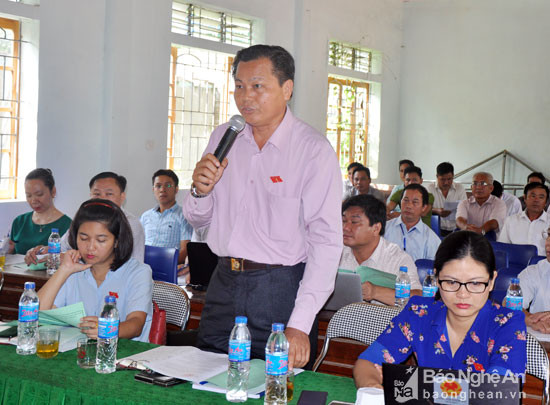 |
| Members of the National Assembly's Ethnic Council's Supervisory Delegation raised questions about the income structure of Chau Binh commune residents. Photo: Cong Kien |
At the meeting, representatives of the Village Management Board also reflected that there are still a large number of households, including ethnic minority families, who have not been granted forest land. Therefore, it is necessary to continue to promptly recover the land area of Co Ba Forestry Farm and hand it over to the people for production, ensuring a stable life.
Members of the monitoring delegation raised issues about the total income and income structure of the Thai ethnic people in the area, the benefits of households receiving forest land, the consequences of the lack of production land; the status of transactions and transfers after land and forest allocation; and the actual forest area managed by the commune and allocated to households.
Answering questions from the monitoring team, Chau Binh commune leaders and local forest rangers clarified the actual situation of management and use of forest land area, and the effectiveness of land and forest allocation policies. Regarding average income per capita, Chau Binh commune is currently at 22 million VND/person/year, mainly from agricultural production (raising, growing) and partly from service development.
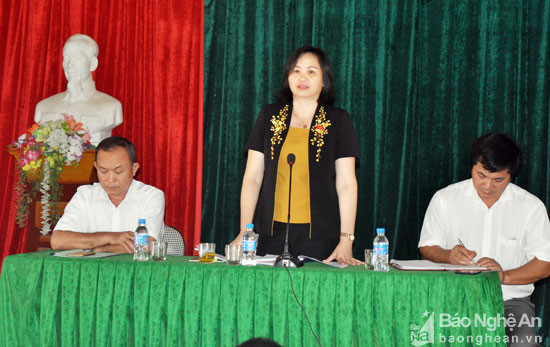 |
| Ms. Cao Thi Xuan - Vice Chairwoman of the National Assembly's Council for Ethnic Minorities requested that localities be more active in organizing the implementation of land and forest allocation to the people. Photo: Cong Kien |
The lack of productive land has led to disputes over forest land, causing insecurity and disorder. Deforestation still occurs, although there have been no hot spots. Trading and buying and selling still takes place in the area, and the forest area managed by the commune has been allocated to households.
On behalf of the Supervisory Delegation, Ms. Cao Thi Xuan noted that the locality needs to be more proactive in completing procedures and organizing the implementation of land and forest allocation, speeding up the recovery of forestry land to hand over to the people and promised to forward this issue to the National Assembly.
Cong Kien

.jpg)
.jpg)
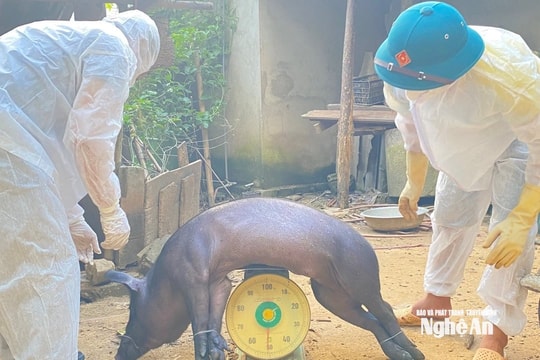
.jpg)
